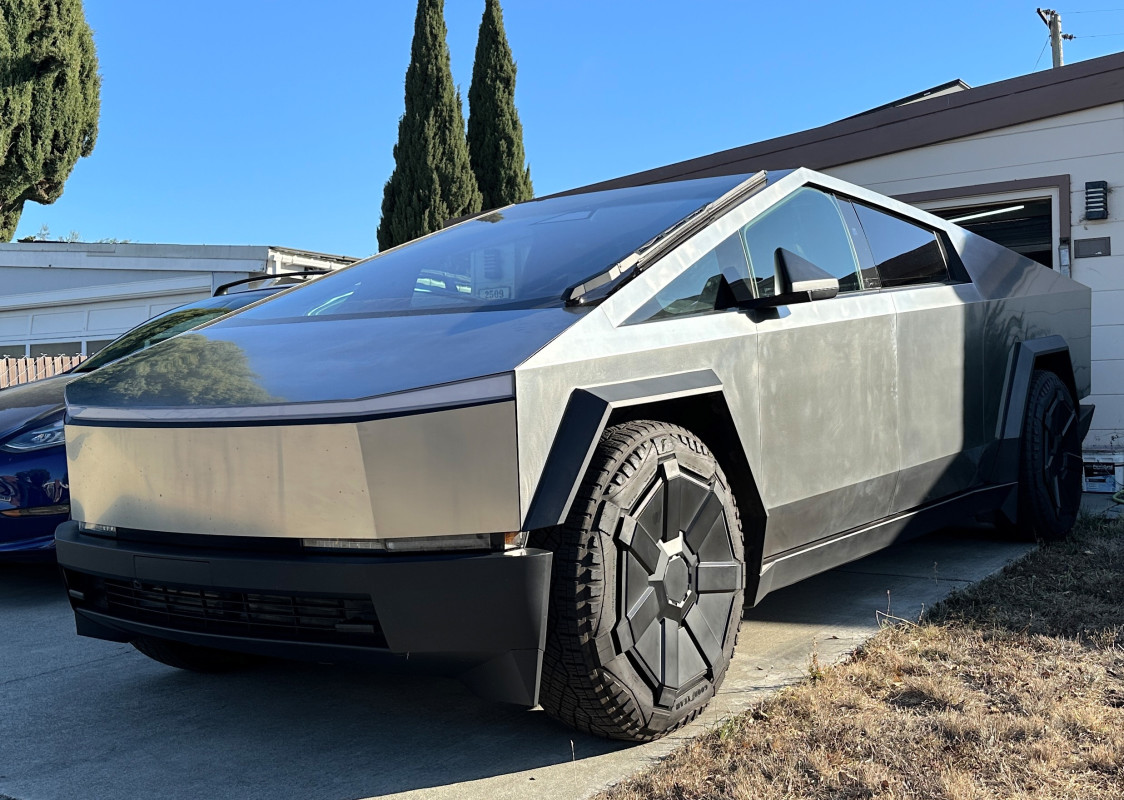
There are a number of difficulties inherent to the production of Tesla's Cybertruck that have contributed to the vehicle's years-long delays and slow volume ramp. The first of these is perhaps the most immediately obvious: Musk chose to build the truck out of an ultrahard stainless steel alloy, which proved difficult to manipulate and bend into the desired shapes.
But beneath the shiny stainless exterior, the truck is powered by a recent evolution in electric vehicle battery technology: the 4680 battery, which Tesla unveiled in 2020 as a solution for greater range and power in its cars.
The development of 4680 battery cells has, according to a Reuters report, acted as a significant speedbump in the production of the Cybertruck.
Related: Why Elon Musk's high Cybertruck pricing is actually a good thing
CEO Elon Musk said in October that he expects Tesla to be producing roughly 250,000 Cybertrucks a year by 2025. He warned at the same time that it could up to 18 months for the Cybertruck to become profitable, due to issues with scalability.
"We dug our own grave with Cybertruck," he said during Tesla's third-quarter earnings call. "The ramp is going to be extremely difficult. There's no way around that."
Tesla's Giga Texas factory announced in June that it had produced 10 million 4680 cells. The company said in October that it had produced 20 million cells.
This current rate of production — approximately 10 million cells every 16 weeks — is only enough to power fewer than 25,000 Cybertrucks a year, sources told Reuters.
The key to Tesla's production of the 4680 cells involves dry-coating electrodes, a process that is both quicker and safer than the more traditional wet-coating process.
But sources told Reuters that the company has yet to figure out how to scale its dry-coating process to the point of being able to hit Musk's production goals.
Related: Tesla CEO Elon Musk pits his brand new Cybertruck against a Porsche 911
Sources said that 4680 batteries in Cybertrucks include 1,360 individual cells — to hit than annual production rate of a quarter million Cybertrucks, Tesla would need to produce 340 million cells each year, multiples above its current production rate.
Though the sources expect the speed of production to eventually pick up at an "exponential" rate, they said that Tesla is struggling to get the battery's cathode materials to stick together without applying water or another solvent. The dry-coating process, they said, worked in small quantities, but not at scale. This was due to the heat generated during scaling efforts which melted the binder.
Further, sources said that Tesla's efforts to scale cell production could result in hidden flaws within a cell's coating, which they said might take months to show up, making it difficult for the company to know which batteries are good and which might need to be scrapped.
Tesla did not respond to a request for comment regarding its reported issues with 4680 battery cell production.
Shares of Tesla, double for the year, rose more than 1% Thursday.
Contact Ian with tips via email, ian.krietzberg@thearenagroup.net, or Signal 732-804-1223.
Related: Investors have finally had enough of Tesla CEO Elon Musk
Get exclusive access to portfolio managers’ stock picks and proven investing strategies with Real Money Pro. Get started now.







